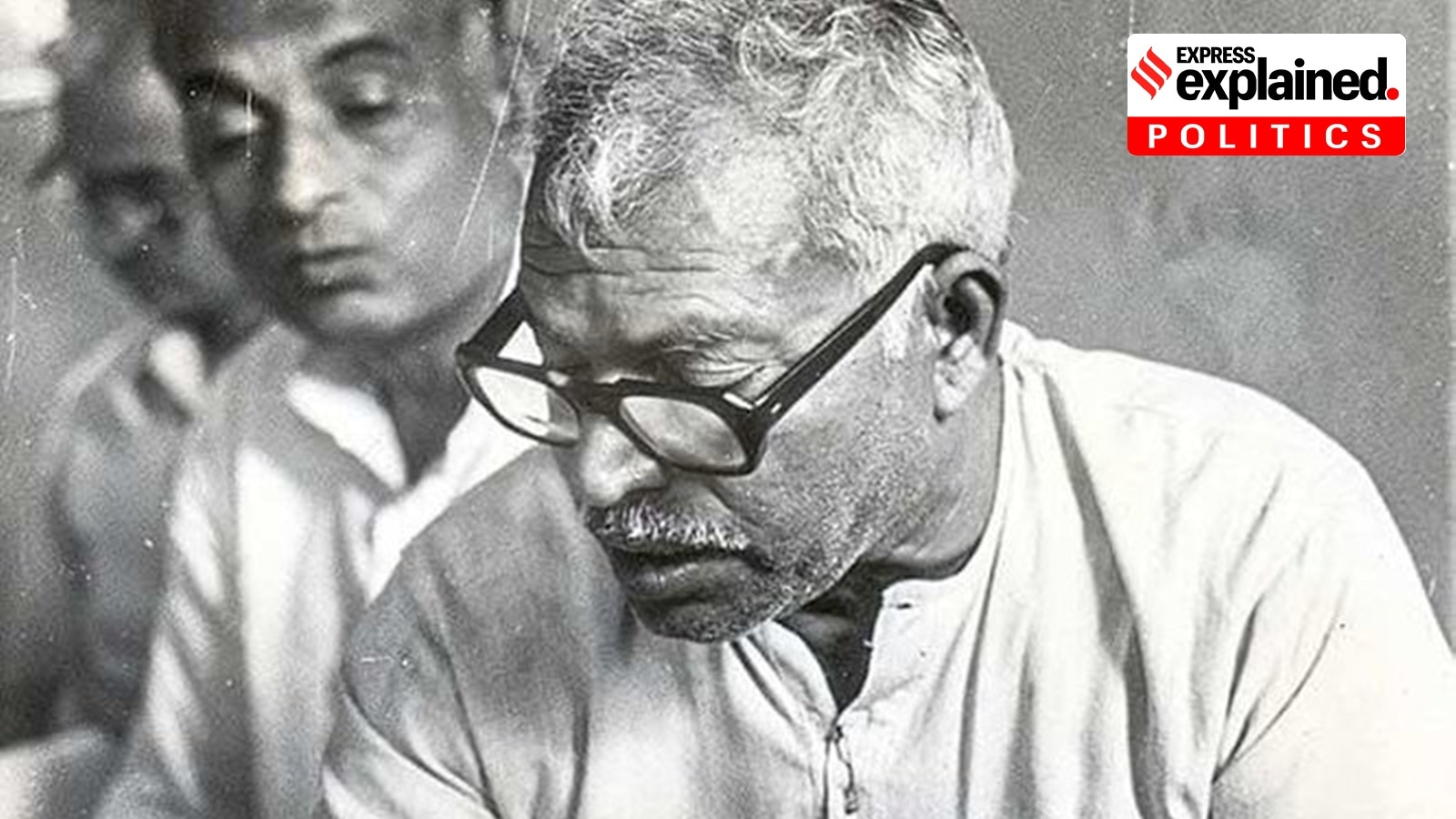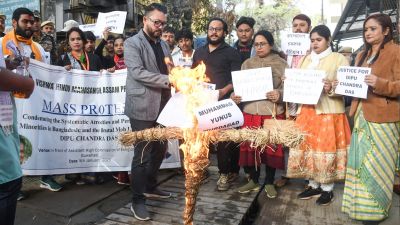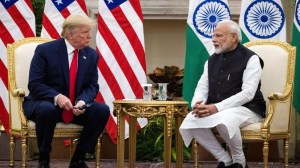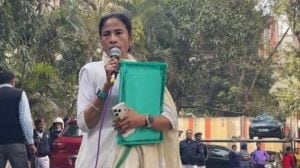The 11th Chief Minister of Bihar, Karpoori Thakur, held the post twice, once for around six months and the next time for under two years. The duration of the tenures little captures the ideological and policy legacy he left behind.
In his lifetime, Thakur saw his stature diminished by the rise of leaders he had mentored, but in the recent decades, he has been claimed and celebrated across party aisles. Among the pantheon of socialist leaders, he is right next to the likes of Dr Ram Manohar Lohia.
Last year, the Narendra Modi government awarded him the Bharat Ratna posthumously.
Came to power amid tumult
The Fifth Bihar Legislative Assembly, constituted in February 1969 and dissolved in January 1972, epitomised the era’s political instability. It witnessed five chief ministers taking oath —Harihar Singh, Bhola Paswan Shastri (twice), Daroga Prasad Rai, and Karpoori Thakur—along with a period of President’s Rule.
Amid this churn, Thakur managed to plant seeds for transformative policies.
Story continues below this ad
When Daroga Prasad Rai’s Congress-led coalition resigned in December 1970, rival claims surfaced immediately. Coalitions were fragile, prone to defections driven by caste loyalties, personal ambitions, and ideological shifts. Bhola Paswan Shastri, who had been on the CM chair twice before, staked claim again, but the Governor invited Karpoori Thakur, leader of the Samyukta Socialist Party (SSP) with support from 169 MLAs, to form the government.
On December 22, 1970, Thakur was sworn in, heading the eighth government since 1967 (excluding President’s Rule). His coalition included SSP, Congress (O), Bharatiya Kranti Dal (BKD), Bharatiya Jana Sangh (BJS), Swatantra Party, a Shoshit Dal faction, and others — a motley alliance united more by anti-Congress sentiment than ideological cohesion.
Thakur’s ministry ballooned to accommodate partners. In February 1971, he expanded the cabinet on three consecutive days, eventually reaching 53 ministers. Like many of his predecessors, much of his energy went into maintaining unity amid the pull and push of splinter groups, personality clashes, and caste egos.
The March 1971 Lok Sabha mid-term polls exacerbated tensions. Indira Gandhi’s Congress (R) swept Bihar with 39 seats (up from undivided Congress’s 34 in 1967), reshaping state dynamics. Defections intensified; the Shoshit Dal and BKD factions wavered, while some SSP and BJS MLAs jumped ship.
Story continues below this ad
A no-confidence motion loomed for June 1, 1971. Hours before the Assembly convened, Thakur resigned. However, that same morning, he had formed a 20-member Commission to study the conditions of and suggest measures for the upliftment of Other Backward Classes (OBC). This bold move was annulled by the successor government of Bhola Paswan Shastri.
LoP, Parliament stint
Thakur had been a freedom fighter. His political career in independent India started in 1952, when he won an Assembly seat from Tajpur on a Socialist Party ticket. He retained it in 1957 and 1962 on a Praja Socialist Party (PSP) ticket, and in 1967 and 1969 on an SSP ticket. In 1972, he won this seat again from the Socialist Party, serving as Leader of Opposition for nearly two years in the Assembly.
Then, national upheavals followed — Indira Gandhi’s Emergency, its revocation, and the Janata Party’s 1977 Lok Sabha victory. Thakur entered Parliament from Samastipur on a Janata Party ticket. The Morarji Desai government dismissed Congress state regimes, including Bihar’s, in April 1977.
After the 1971 Census, delimitation had expanded Bihar’s Assembly to 324 seats from 318. In the ensuing polls, Congress plummeted to 57 seats; the Janata Party, merging four major and smaller groups, secured a majority with 214 seats.
Story continues below this ad
Though an MP, Thakur was elected Janata Legislature Party leader.
CM again
Resigning from Lok Sabha, Karpoori Thakur became the Chief Minister again on June 24, 1977, for a 22-month term. To reach the Assembly, he won a by-poll from the Phulparas seat.
Born into the Nai (barber) caste—a non-farming Extremely Backward Class (EBC)—Thakur prioritised social equity. His 1971 Commission had been scrapped, but was replaced by Shastri’s December 1971 Mungeri Lal Commission (chaired by freedom fighter and ex-legislator Mungeri Lal). In 1976, this Commission recommended OBC upliftment in its report.
Now in power with a full majority, Thakur implemented a graded reservation formula: 12 per cent for EBCs, 8 per cent for Backward Classes (BCs, mainly farming OBCs like Yadavs, Kurmis, Koiris), 3 per cent for women across categories, and 3 per cent for economically weaker sections. This sub-categorisation distinguished artisans and service castes from agrarian ones, addressing intra-OBC disparities.
Story continues below this ad
While a 15 per cent reservation for OBCs had been implemented by his UP counterpart Ram Naresh Yadav in August 1977, it was not sub-categorised, like in Bihar.
Thakur’s policy of affirmative action ignited backlash. Upper-caste members in his Janata Party opposed it. Many of his cabinet colleagues resigned in protest, and for a while, the entire Janata Party leadership appeared divided into two parts, pro- and anti-OBC reservation. Internal revolt forced Thakur’s resignation in April 1979, to be replaced by Scheduled Caste leader Ram Sundar Das.
Thakur in this tenure also banned alcohol, a policy move rescinded by Das but brought back by Nitish Kumar decades later.
In 1980, Thakur won the Samastipur Assembly seat on the Janata Party (Secular) — the Charan Singh faction — ticket. Congress regained Bihar in 1980; Thakur remained Opposition Leader. He won Sonbarsa in 1985 as Lok Dal candidate, holding the role of Leader of Opposition until February 12 1988. He passed away a week later.
Story continues below this ad
Karpoori Thakur’s legacy
A Quit India veteran jailed multiple times, including during Emergency, Thakur embodied principled socialism.
His reservation model influenced later politics. As OBC consolidation peaked—Yadavs, Kurmis, Koiris, Lodhs, Sainis dominating politics —parties sought alliances with non-Yadav/EBCs, reviving Thakur’s formula. The Modi government formed the G Rohini Commission in 2017 for OBC sub-categorisation, which submitted its report on July 31, 2023.
In an era of defections and instability, he pioneered sub-classified reservations, fostering equity amid caste complexities. His foresight shaped Bihar’s social justice discourse, inspiring national policies and earning him the epithet of Jannayak (people’s leader).
Thakur’s son, Ramnath Thakur, is a Rajya Sabha MP from Janata Dal (United) and Union Minister of State in the Department of Agriculture and Farmers Welfare.








































